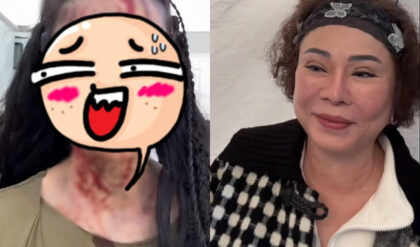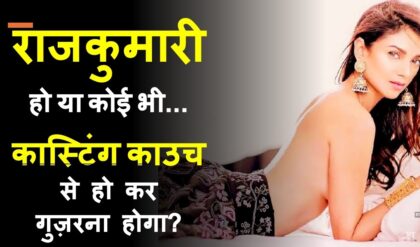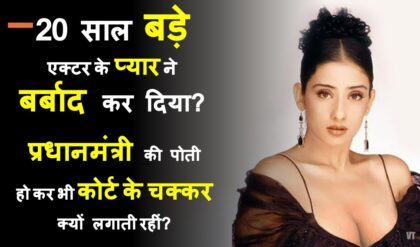In the age of social media and instant news, it’s more important than ever to approach sensational headlines with skepticism and a commitment to verifying facts. A recent headline claiming that Hina Khan, the popular Indian television actress, underwent a breast removal surgery that went wrong after battling the third stage of breast cancer is not only false but also deeply irresponsible. This kind of misinformation can have significant negative consequences, not only for the individual involved but for society as a whole.
Hina Khan is a well-known figure in the Indian entertainment industry, having gained fame through her roles in television serials and reality shows. She has a massive following on social media, and any news related to her personal or professional life tends to attract significant attention. However, this also makes her a target for rumors and fake news, especially when it comes to sensational or controversial topics. The false claim about her supposed breast cancer diagnosis and subsequent surgery is a prime example of how misinformation can spread rapidly and cause unnecessary distress.
First and foremost, there is no credible evidence or official statement from Hina Khan or her representatives that supports the claim that she has been diagnosed with breast cancer or that she has undergone any kind of surgery related to it. In fact, as of the most recent updates, Hina Khan appears to be in good health and continues to be active in her career. The spread of such a baseless rumor not only harms her reputation but also trivializes the experiences of those who are genuinely battling cancer.
The impact of spreading false information about someone’s health can be far-reaching. For the individual, it can lead to emotional distress, as they may have to deal with unwanted attention, concern, or even pity from the public. It can also strain their relationships with family, friends, and colleagues, as they are forced to address rumors that have no basis in reality. Moreover, in the case of celebrities like Hina Khan, such rumors can affect their professional lives, as producers, directors, and brands may hesitate to work with someone who is perceived to be unwell.
Beyond the individual, spreading misinformation about health issues like cancer can contribute to a broader culture of fear and misunderstanding. Breast cancer, in particular, is a disease that affects millions of women worldwide, and it is a topic that should be approached with sensitivity and respect. When false claims about a celebrity’s battle with cancer are circulated, it can create confusion and anxiety among the public. People may begin to question the accuracy of medical information they receive, or they may develop unfounded fears about their own health.
Another significant issue with such misleading headlines is the potential to spread harmful stereotypes and stigmas. For instance, the idea that a breast removal surgery could “go wrong” implies a negative outcome that may not be representative of the reality of such procedures. Breast removal, or mastectomy, is a common and often life-saving surgery for women with breast cancer. While it is a major surgery with potential risks, like any medical procedure, it is an important option for many women and should not be portrayed in a way that generates unnecessary fear.
The rise of social media has made it easier than ever to share information, but it has also made it easier for misinformation to spread. In the case of the false news about Hina Khan, it is likely that the rumor began with a single post or article and was quickly picked up and amplified by others. Unfortunately, many people do not take the time to verify the information they see online before sharing it with their own networks. This can create a snowball effect, where a single false claim becomes widely accepted as fact simply because it has been repeated so many times.
To combat the spread of misinformation, it is essential for both individuals and media outlets to adopt a more responsible approach to consuming and sharing information. For individuals, this means taking the time to verify the accuracy of a claim before sharing it with others. A simple search for credible sources or an official statement from the person involved can often clarify whether a piece of news is true or not. For media outlets, it means adhering to higher standards of journalism, including fact-checking and providing accurate, balanced reporting.
In the context of breast cancer, it is particularly important to rely on information from reputable medical sources. Breast cancer is a serious and complex disease, and there are many resources available that provide accurate, up-to-date information about its causes, symptoms, treatment options, and prognosis. Organizations like the American Cancer Society, the National Breast Cancer Foundation, and Cancer Research UK are excellent sources of reliable information. They also offer support for those who are affected by breast cancer, whether directly or through a loved one.
In conclusion, the false claim that Hina Khan underwent a failed breast removal surgery after battling the third stage of breast cancer is a clear example of how misinformation can spread and cause harm. It is a reminder of the importance of verifying information before sharing it, especially when it concerns sensitive topics like health. As consumers of news and information, we have a responsibility to be critical thinkers and to seek out the truth rather than simply accepting sensational headlines at face value.
Watch video:





